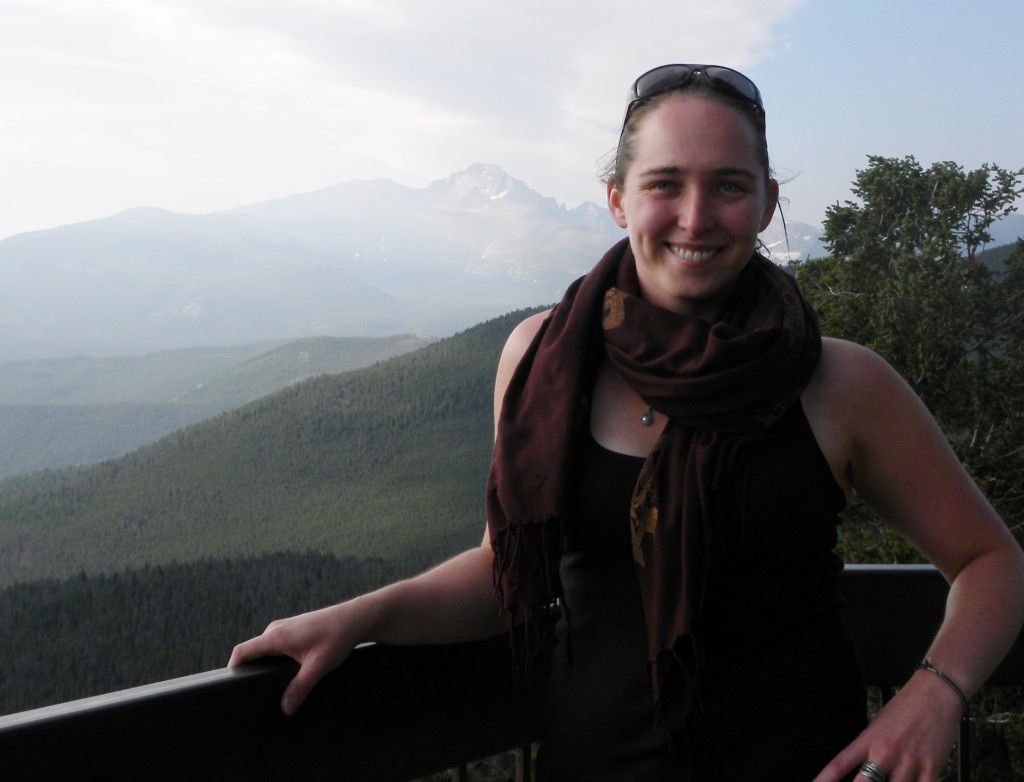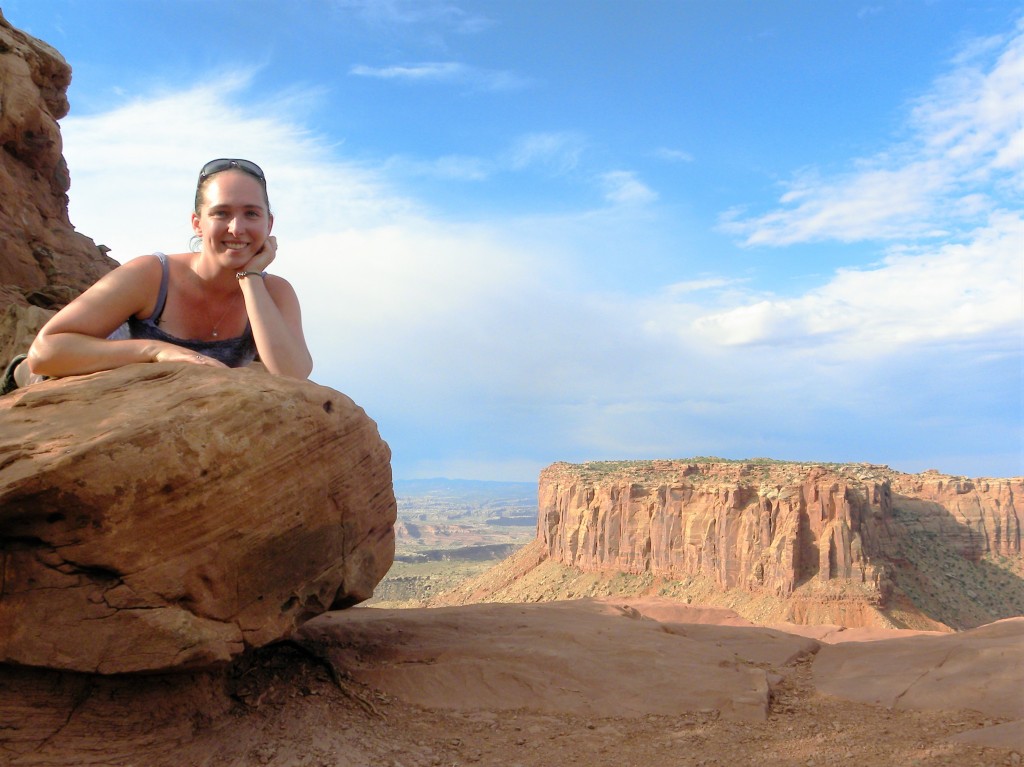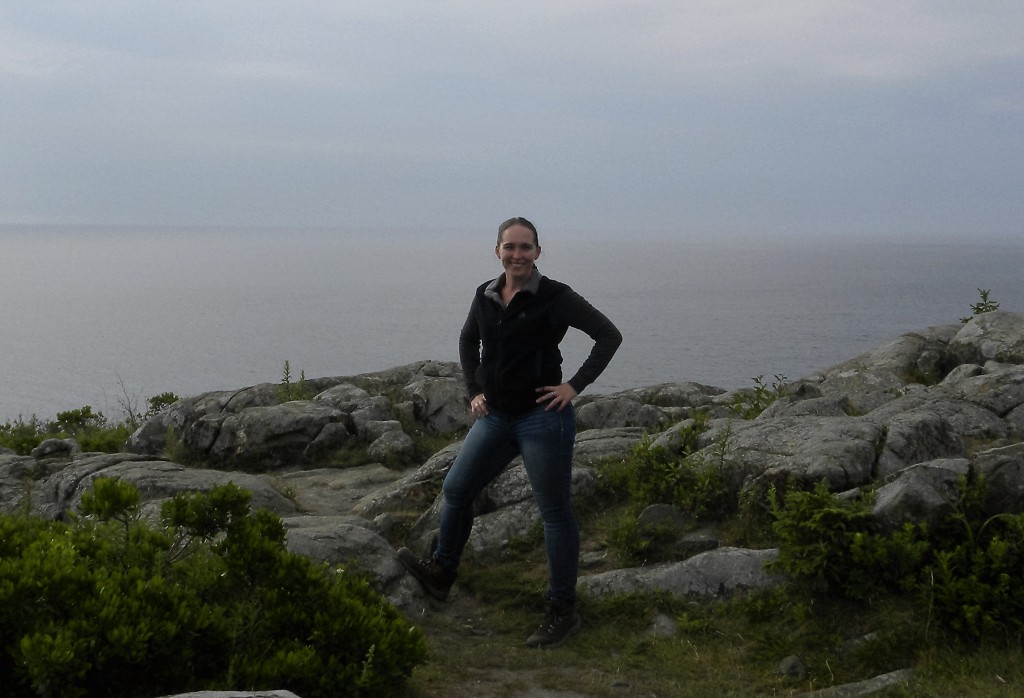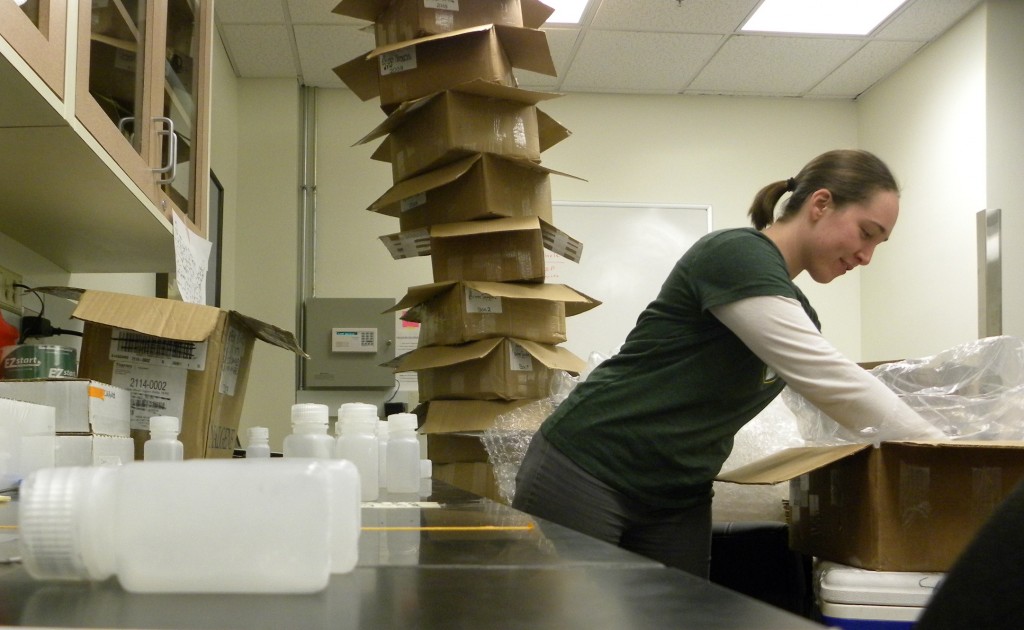Sarah Anderson
 Sarah Anderson is currently working toward her PhD studying sources of atmospheric nitrogen deposition. Her dissertation combines stable isotope analyses, atmospheric modeling, and biological indicators to study how sources of nitrogen deposition change over different time scales. She is pulling from archives of both precipitation samples and samples of biological indicators to look at change over timescales a lot longer than a typical PhD is capable of when sampling directly from the field.
Sarah Anderson is currently working toward her PhD studying sources of atmospheric nitrogen deposition. Her dissertation combines stable isotope analyses, atmospheric modeling, and biological indicators to study how sources of nitrogen deposition change over different time scales. She is pulling from archives of both precipitation samples and samples of biological indicators to look at change over timescales a lot longer than a typical PhD is capable of when sampling directly from the field.
Sarah started her PhD as an IGERT (Interdisciplinary Graduate Education and Research Traineeship) Fellow with the NSPIRE (Nitrogen Systems: Policy-oriented Integrated Research and Education)-IGERT at Washington State University. She was drawn to this program because of the chance to do an interdisciplinary PhD, and it has been extremely rewarding to have the chance to work with so many people in such diverse disciplines from atmospheric science to animal science to hydrology to soil science to public policy!
Sarah  became interested in environmental science while growing up along the Apple River. She loved being outside and exploring the banks of the river and seeing numerous algal blooms caused by fertilizer run-off. Sarah’s concern and interest in the dynamics of the ecosystems around her “led me to take a Freshwater Ecology course in high school where we sampled lakes and streams, analyzed the samples ourselves, and created the data that our instructor reported to the local department of natural resources. I loved the lab-work, the field, and seeing how our class’s work contributed to decision-making and management. I was hooked on applied science and have been ever since.”
became interested in environmental science while growing up along the Apple River. She loved being outside and exploring the banks of the river and seeing numerous algal blooms caused by fertilizer run-off. Sarah’s concern and interest in the dynamics of the ecosystems around her “led me to take a Freshwater Ecology course in high school where we sampled lakes and streams, analyzed the samples ourselves, and created the data that our instructor reported to the local department of natural resources. I loved the lab-work, the field, and seeing how our class’s work contributed to decision-making and management. I was hooked on applied science and have been ever since.”
Sarah explains, “ESWN has been a wonderful resource as I have grown into a scientist throughout my PhD. It has provided insight into the next stages my career will likely take. ESWN also has provided me with a community while feeling quite isolated as an interdisciplinary PhD student on the fringe of my department, intellectually. The space ESWN provides has allowed me to ask difficult questions and get a broad, diverse perspective not possible in the community that I find myself. I have been fortunate to attend the ESWN Workshop in Madison in 2012 and the Workshop in Providence in 2013. I have also helped schedule a couple happy hours while at conferences, and I love interacting with fellow ESWN folks. They are insightful, intelligent, kind, and fun. The network ESWN provides has made me feel a part of the scientific community from the beginning of my PhD.”
In addition to her research and engagement with ESWN, Sarah has been active in leadership as student representative for the Biogeosciences section of the American Geophysical Union. Last year, Sarah won the Ecological Society of America’s graduate student policy award.
Sarah still loves getting outside and exploring. She loves hiking and gardening when weather permits, and baking at home when it doesn’t. Sarah adds, “My favorite pastime however is cheering on my favorite team. Growing up in Wisconsin, I could not possibly describe myself and leave out a ‘Go Pack Go!’ ”


